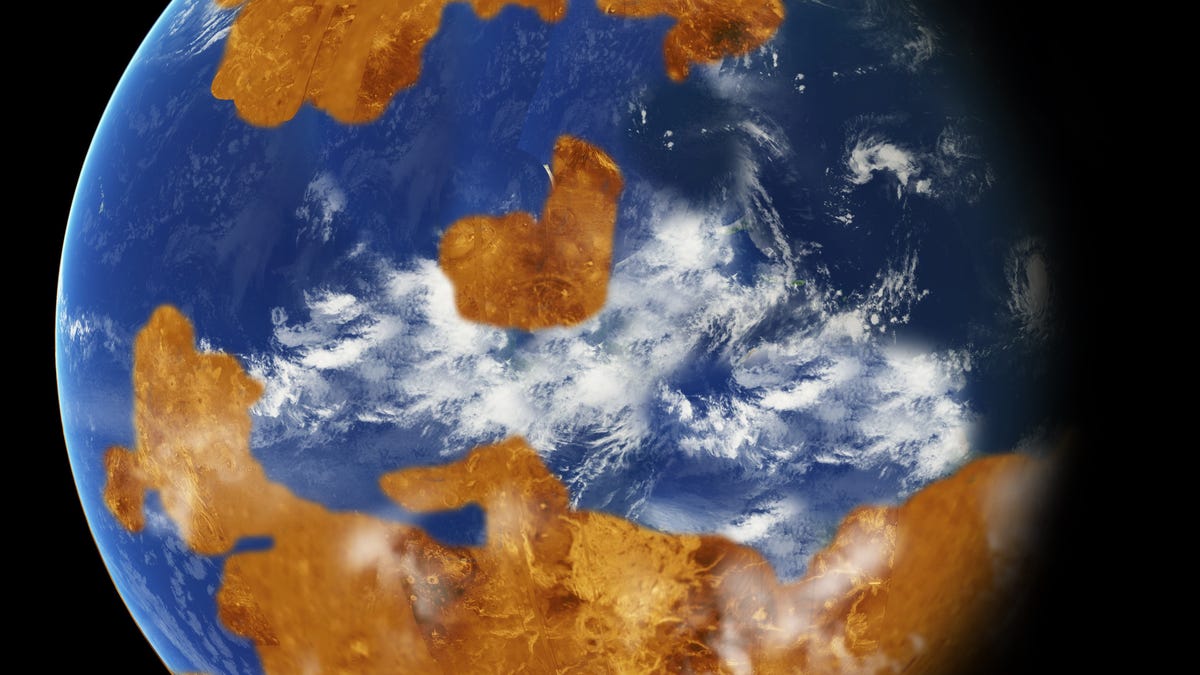Venus is a horrid hellscape now, but it may have been livable for eons
New modeling looks at our neighbor's past and finds the planet surprisingly worthy of a visit.
Life in the universe is all about timing.
For billions of years our planet didn't even exist, and after Earth finally came on the scene, it was still a lifeless hellscape for over a half billion years. Now, new findings from NASA scientists suggest Venus -- one of the least desirable destinations in today's solar system -- may have been habitable for billions of years in the past.
The Venus we know is just plain awful. Its thick, carbon dioxide atmosphere topped with clouds of sulfuric acid has a crushing pressure over 90 times more than that of Earth. Did I mention that the place has an average temperature of 462 degrees Celsius (863 degrees Fahrenheit)?
The atmosphere of Venus is so thick, it was once presumed that it had something to do with the planet's very slow rotation rate -- a day on Venus is equal to 117 Earth days. However, newer research has shown that a planet with a thinner atmosphere like ours could also have a very slow rotation rate.
According to NASA, this also means that ancient Venus could have had the same rotation period it has now, but with a thin atmosphere like Earth's.
Scientists at NASA's Goddard Institute for Space Studies (GISS) used this and other insights to create computer models similar to those used to predict climate change on Earth, but instead looking into Venus' distant past.
"In the GISS model's simulation, Venus' slow spin exposes its dayside to the sun for almost two months at a time," GISS scientist Anthony Del Genio said in a release. "This warms the surface and produces rain that creates a thick layer of clouds, which acts like an umbrella to shield the surface from much of the solar heating. The result is mean climate temperatures that are actually a few degrees cooler than Earth's today."
A paper describing the findings was published Thursday in the most recent issue of Geophysical Research Letters.
We could look at the notion that Venus was once like Earth as a warning that our planet may not be as stable and consistent as it often seems and that the threat of a runaway greenhouse effect is something to take seriously. Or it could be evidence that we don't really understand our universe nearly as well as we sometimes like to think. Research out of Rice University last month argued that you wouldn't have to change much in our planets' evolution for Earth to be the searing hellscape today and Venus to be the prime place to catch Pokemon.
The fact remains that today's Venus isn't worthy of a vacation, though. Or is it? Not long ago NASA "floated" the idea of human exploration above Venus in a cloud city just over the planet's toxic clouds. Good to know that if Earth does follow a similar path to that of Venus, at least we could have somewhere to go.


